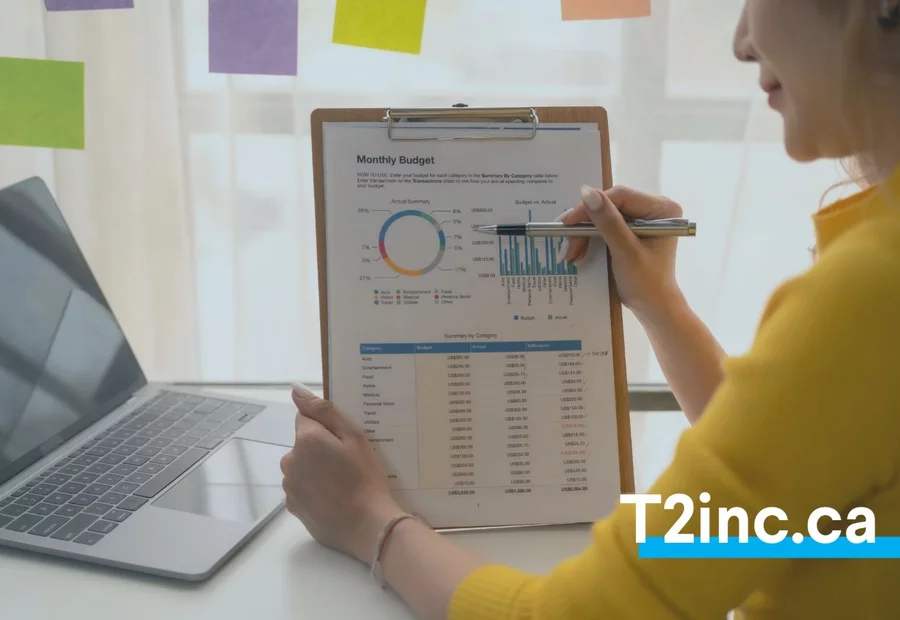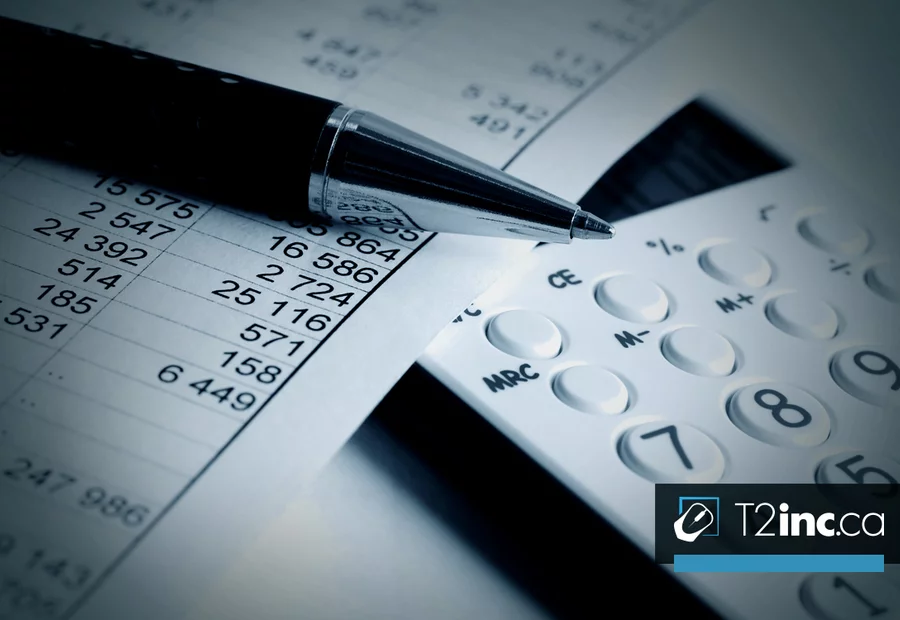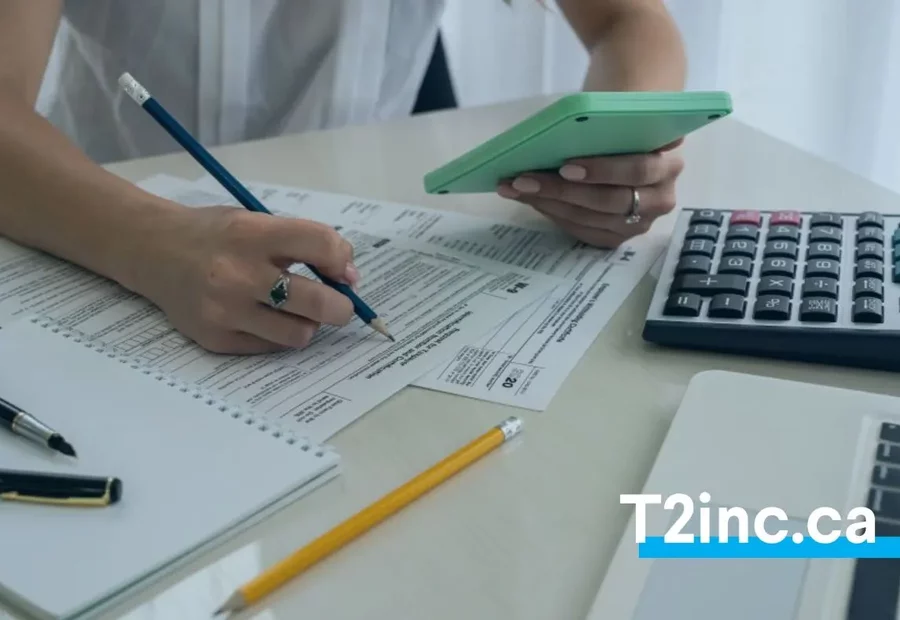Capital Cost Allowance Classes (CCA) & depreciation rates: How to classify your assets to optimize your corporate tax
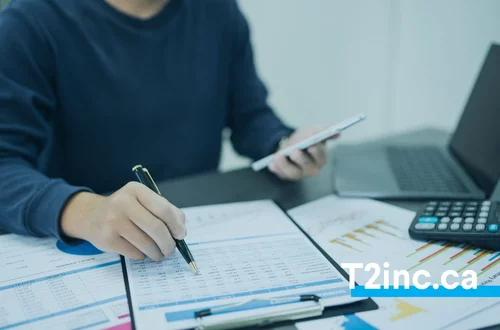
Did you know that the depreciation rate applied to your business assets can vary from 4% to 100%, depending on the type of asset and the capital cost allowance class (CCA class) into which it falls? Properly classifying your depreciable properties is more than an accounting formality—it’s a strategic lever that directly affects how much CCA you can claim and how quickly you can recover costs.
Whether you're investing in a building, a computer, vehicles acquired for commercial use, or even zero-emission vehicles, each property acquired must be assigned to a specific CCA class, each with its own depreciation rules and rates. But with more than 20 recognized capital cost allowance classes established by the CRA and Revenu Québec, how can you navigate them all? And more importantly, how can you avoid a misclassification that could negatively impact your corporate tax situation?
In this comprehensive guide, we’ll walk you through the most common classes of depreciable property, their classes and rates, and real-world examples, so you can classify your fixed assets confidently and make smarter tax planning decisions.
How do Capital Cost Allowance classes (CCA classes) affect your business taxes?
The CCA class assigned to a capital asset determines the depreciation rate you can claim for tax purposes each year. The higher the rate, the faster you recover the expense, which directly reduces the net taxable income you report on your T2 tax return.
Some capital cost allowance classes offer accelerated deductions to encourage investment, particularly in clean technology or manufacturing. Others, such as Class 10.1, impose strict limits or prevent any tax recovery upon disposal of the asset.
If you'd like to explore the basics, read our full article on what capital cost allowance (CCA) is and how it's calculated.
Straight-line or declining balance depreciation: What the tax law says
Once you have assigned an asset to the appropriate CCA class, the next step is to apply the annual depreciation rate using one of two methods approved by the Canada Revenue Agency (CRA): the straight-line method or the declining balance method.
The declining balance method calculates depreciation each year based on the remaining value of the asset, known as the undepreciated capital cost. As a result, you deduct more in the early years and less over time. The straight-line method, on the other hand, uses a fixed percentage of the original capital cost each year, regardless of the asset's salvage value.
Here's a simplified example of the declining-balance method for a $10,000 Class 8 asset with a 20% depreciation rate:
- Year 1: $10,000 × 20% = $2,000, but with the half-rate rule = $1,000
- Year 2: $9,000 × 20% = $1,800
- Year 3: $7,200 × 20% = $1,440
- And so on.
Some investment expense classes are exempt from the semiannual rule. For example, Class 12, which includes small tools and software, allows you to deduct 100% of the cost of the asset in the year of purchase. Others, such as class 10.1, are capped at a fixed cost threshold and offer no tax recapture when the asset is sold or disposed of.
In short, the method used, straight-line or declining balance, depends entirely on the CCA class assigned to the asset. And that method will directly affect how quickly you can recover the cost of your investments through tax deductions.
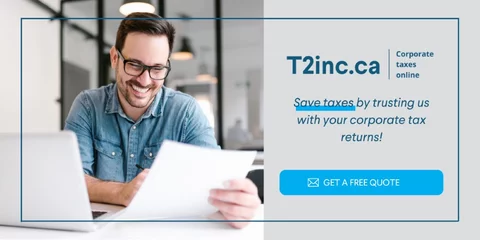
Class 1 (4%) — Depreciable Buildings
Class 1 applies to depreciable buildings acquired or constructed after 1987, excluding industrial or temporary-use structures that fall into other classifications. These properties are typically for commercial or rental purposes and represent long-term capital assets for incorporated businesses.
The CCA rate is 4% annually, calculated using the declining-balance method. The deduction is based on the undepreciated capital cost (UCC), which decreases each year.
Examples of assets :
- Office buildings used in business operations.
- Commercial premises held by a property management corporation.
- Residential rental buildings held by an incorporated entity.
When acquiring this type of property, it’s essential to distinguish between the land (not depreciable) and the structure itself. Only the building portion of the capital cost qualifies for capital cost allowance.
Class 3 (5%) — Non-residential buildings acquired before 1988
Class 3 covers certain non-residential buildings acquired or under construction before 1988, as long as CRA’s criteria are met. Specifically, this includes properties excluded from Class 6, acquired under a written agreement before June 18, 1987, or under construction at that time.
The CCA rate is 5%, applied on a declining-balance basis.
Examples of assets:
- Industrial facilities or warehouses from the 1980s.
- Commercial buildings purchased under qualifying agreements before mid-1987.
Additions or renovations made after 1987 may still qualify under Class 3, provided they do not exceed the lower of $500,000 or 25% of the total capital cost (including prior modifications). If exceeded, the surplus must be reallocated to Class 1.
Class 6 (10%) — Temporary or lightweight buildings
Class 6 includes buildings constructed from light materials such as wood, logs, stucco on wood framing, galvanized sheet metal, or corrugated metal. To be eligible, at least one of the following must apply:
- The building was acquired before 1979.
- It is used primarily in farming or fishing activities.
- It lacks a full foundation beneath ground level.
The CCA rate is 10%, using the declining-balance method.
Examples of eligible assets:
- Demountable or foundationless greenhouses.
- Farm buildings made of wood or metal without concrete bases.
- Basic sheds used for agricultural storage.c
If none of the conditions are met, eligibility may still be granted if the foundation began before 1979. Some fences and greenhouses may also fall under this class.
Post-1978 additions are capped at $100,000 in Class 6. Excess costs must be reclassified into Class 1 or Class 3 based on CRA thresholds.
Class 8 (20%) — Office furniture, computers
Class 8 is one of the most commonly used capital cost allowance classes by Canadian businesses. It covers a broad range of depreciable assets used in business operations, including office furniture, computer hardware, tools, light machinery, and other equipment not specifically included in another CCA class.
The applicable depreciation rate is 20%, calculated using the declining balance method. The deduction is applied each year to the undepreciated capital cost (UCC), meaning the amount decreases annually as the asset depreciates.
Examples of assets:
- Desks, filing cabinets, conference tables.
- Printers, routers, entry-level servers.
- Workshop tools, compressors, light machinery.
- Audio-visual systems, basic security installations.
Some goods in this group could, however, be categorized elsewhere, depending on their precise nature. This is the case, for example, with recent computers, which generally fall into category 50 (55%), small tools included in category 12 (100%), or electronic communications and data network infrastructure equipment, often classified in category 46. The proper classification depends on the asset’s intended use and must align with CRA’s CCA guidelines.
Class 10 (30%) — Motor vehicles and mobile equipment
Class 10 includes most motor vehicles used for commercial purposes. This encompasses trucks, vans, service vehicles, and some light mobile equipment that does not fall under Class 10.1 due to price thresholds.
The CCA rate is 30%, calculated using the declining balance method. This allows businesses to quickly recover part of the vehicle’s cost through annual tax deductions.
Examples of eligible assets:
- Delivery vans.
- Service vehicles for technicians or installers.
- Vehicles used to travel between job sites.
- Mobile equipment such as forklifts.
To qualify, the vehicle must be used primarily for business activities. If the usage is mixed (business and personal), only the business portion is deductible. Keeping accurate mileage logs is recommended for audit purposes.
Class 10.1 (30%) — Passenger vehicles over $30,000
Class 10.1 applies to passenger vehicles whose purchase price exceeds the CRA limit of $30,000 (before tax). Although it shares the same depreciation rate as Class 10 (30%), it is subject to important restrictions.
The CCA deduction is capped at a $30,000 limit, regardless of the actual purchase price, and no terminal loss or recapture applies when the asset is disposed of.
Special features of Class 10.1:
- The $30,000 cap excludes sales taxes and additional fees;
- Upon sale, no gain or loss can be reported for tax purposes on the asset.
Examples of assets:
- Executive luxury cars used exclusively for business.
- Personal vehicles partly used for business operations.
Because of this treatment, Class 10.1 is intended to limit tax benefits on luxury vehicles. Strategic planning is advisable when purchasing vehicles close to or above this threshold.
Class 12 (100%) — Tools and commercial software
Category 12 is designed for short-lived or low-cost assets whose value can be deducted in full in the year of acquisition. It is designed to simplify the accounting treatment of certain equipment by allowing immediate deduction of 100% of the eligible cost, without applying the half-rate rule.
The CCA rate is 100%, on a straight-line basis. This means that the total cost is deductible in the year the asset is put into service.
Examples of eligible assets:
- Small hand tools costing less than $500.
- Purchased commercial software (not developed in-house).
- Patents, industrial designs or user licenses.
- Depreciable promotional or exhibition equipment.
Software developed in-house is not included here; instead, it should be treated as a development expense (category 14.1) or as a current expense, as appropriate.
Class 14 — Limited-duration intangibles
Class 14 applied to intangible property with a finite lifespan acquired or developed before January 1, 2017. These assets enabled the business to earn income but did not have indefinite value.
Deductions were taken over the expected useful life of the asset, typically in equal annual amounts, without applying the half-year rule.
Examples of assets :
- Commercial operation rights with a set expiry.
- Non-renewable licenses or permits.
- Incorporation costs capitalized before 2017..
Since 2017, such assets are now included under Class 14.1. However, older assets can continue to be amortized under the legacy rules.
Class 14.1 (5%) — Intangibles and goodwill (post-2017)
Introduced on January 1, 2017, Class 14.1 consolidates most intangible assets, including goodwill, trademarks, and business incorporation costs.
The CCA rate is 5% using the declining balance method. A temporary 7% rate may apply to certain assets transferred to this class following regulatory changes.
Examples of eligible assets:
- Acquired goodwill.
- Business trademarks and licenses.
- Incorporation expenses after 2016.
This harmonized class helps businesses consistently plan deductions for intangible assets under CRA’s updated framework.
Class 16 (40%) — Aircraft and specialized vehicles
Class 16 includes specialized motor vehicles not used for ordinary transportation. This typically includes air, rail, and heavy off-road vehicles used in sectors like forestry or mining.
The CCA rate is 40%, declining balance — a high rate reflecting the intensive use and rapid depreciation of such assets.
Examples of eligible assets:
- Commercial aircraft (planes, helicopters).
- Locomotives or rail equipment.
- Off-road vehicles for forestry or mining operations.
- Cranes and heavy lifting equipment.
The use of the asset is an essential criterion for its eligibility. It must be used primarily for the company's commercial activities. This category generally concerns companies active in the specialized transport, resource exploitation or industrial logistics sectors.
Class 43 (30%) — Standard energy systems
Class 43 applies to certain systems used for energy production, conservation, or efficient use. These include industrial or commercial equipment designed to reduce energy consumption in buildings or production processes.
The capital cost allowance rate is 30%, based on the declining balance method.
Examples of eligible assets:
- Cogeneration units.
- Heat recovery systems.
- Small-scale solar water heaters.
To qualify, equipment must meet specific technical requirements set by the Canada Revenue Agency (CRA). In most cases, supporting documentation demonstrating compliance is required.
Class 43.1 (30%) — Clean energy technologies
Class 43.1 includes equipment used to generate low-emission energy. This category was created to promote investment in clean technologies and supports assets such as solar and geothermal systems.
The CCA rate is also 30%, using the declining balance method.
Examples of eligible assets:
- Solar panels.
- Small wind turbines.
- Geothermal heat pumps.
- Biomethanization units.
To be eligible, assets must meet detailed technical specifications published by the CRA. These investments may also open access to certain provincial tax credits.
Class 43.2 (50%) — Accelerated clean energy depreciation
Class 43.2 covers the same types of equipment as Class 43.1, but allows for faster depreciation thanks to a bonus rate of 50%, again on a declining-balance basis.
This accelerated rate is offered to encourage companies to adopt renewable energy solutions more quickly. Eligibility depends on acquisition date and current technical specifications.
Examples:
- Commercial photovoltaic systems.
- Industrial wind turbines.
- High-capacity energy storage batteries.
These classifications represent a strategic opportunity for companies wishing to invest in energy efficiency while benefiting from a substantial tax advantage.
Class 44 (25%) — Development expenses
Class 44 applies to certain capitalized development costs incurred to create or improve a product, process, or technology, mainly in the manufacturing or processing sectors.
The CCA rate is 25%, using the declining balance method.
Examples of eligible assets:
- Product development expenses related to patentable innovations.
- Feasibility or technical studies before commercialization.
- Process optimization expenses.
To qualify for this class, expenses must be capitalized on the balance sheet. If treated as current expenses, they may be deducted in full in the year incurred.
Class 45 (45%) — Computer equipment (2011-2015)
Class 45 applied to computers and IT equipment purchased between January 27, 2009 and February 1, 2011, during a temporary federal stimulus period.
The applicable depreciation rate is 45%, using the declining-balance method.
Examples:
- Servers acquired in 2013.
- Computer networks implemented before 2015.
While no longer available for new purchases, this class may still apply to assets retained on your balance sheet from that timeframe.
Class 46 (30%) — Telecommunications equipment
Class 46 covers equipment used to transmit, receive or process communication signals. It covers technological infrastructures, telephony systems, data systems and communication networks.
The CCA rate is 30%, on a declining-balance basis.
Examples of assets :
- Structured cabling in an office building.
- Radio relay and satellite transmission equipment.
- Switches, routers, network infrastructure equipment and IP telecommunication systems.
This category also includes certain specialized IT equipment or universal electronic processing hardware, depending on their function within data networks and associated software. It is essential for companies that rely heavily on connectivity or information transmission.
Class 50 (55%) — Recent computer and digital equipment
Class 50 is intended to promote technology investment. It applies to computers, digital hardware, and related software acquired after January 27, 2009.
The CCA rate is 55%, declining balance, making it one of the most generous rates in the Canadian tax system.
Examples:
- Laptops and desktops.
- Servers, cybersecurity tools, firewalls.
- Workstations for software development or graphic design.
This class is especially beneficial for companies in IT, design, digital services, or professional fields that require regular hardware upgrades.
Class 52 (100%) — Computers acquired between 2009 and 2011
Class 52 was a temporary class introduced to stimulate economic activity. It allowed a full 100% deduction in the first year for computer purchases made between January 27, 2009 and February 1, 2011.
The rate is 100%, using the straight-line method, with no half-year rule.
This class no longer applies to new purchases but may still be used for assets recorded during the eligible period and still held by the company.
Class 53 (50%) — Manufacturing and processing equipment
Class 53 covers new machinery acquired after 2015 for use in qualifying manufacturing or processing activities in Canada.
The CCA rate is 50%, applied on a declining balance basis.
Examples of eligible assets:
- CNC machines, industrial presses.
- Food processing lines, automated equipment
To qualify, the equipment must be new and primarily used in Canada for eligible manufacturing operations. Businesses should retain documentation to demonstrate compliance with CCA requirements.
Class 54 (30%) — Energy-efficient equipment
Class 54 applies to commercial or industrial equipment that meets strict energy efficiency standards. These assets are typically used to modernize facilities and reduce energy costs.
The CCA rate is 30%, on a declining balance basis.
This category is particularly attractive for SMEs upgrading their equipment with a view to energy efficiency.
Examples of eligible assets:
- IE3 or higher energy-efficient motors.
- Certified high-efficiency pumps.
- Dry-type transformers with low-energy loss.
- Industrial compressors with premium efficiency.
Eligibility usually requires technical documentation certifying compliance with efficiency benchmarks.
Class 55 (40%) — Clean production equipment
Class 55 targets assets that reduce pollutant emissions or significantly improve environmental performance during the production process.
The depreciation rate is 40%, declining balance, reflecting government support for clean technologies.
Examples of eligible assets:
- Carbon capture and storage (CCS) units.
- Air or gas purification systems.
- Industrial liquid or airborne contaminant filters.
- High-efficiency heat recovery systems.
Eligible equipment must appear on the CRA’s approved list, which is updated annually. Supporting technical specs are typically required.
Class 56 (30%) — Emerging green technologies
Class 56 was created to support emerging environmental innovations not already covered by other clean energy classes. It includes recent technology designed to support the green transition.
The CCA rate is 30%, on a declining balance basis.
Examples:
- EV charging stations.
- Smart energy management systems.
This class evolves rapidly. To ensure compliance, consult the latest CRA guidelines on qualifying technologies.

Choosing the right CCA class to maximize your tax deductions
Assigning the correct capital cost allowance class to each business asset isn't a routine step, it's a strategic decision that has a direct impact on your tax savings, your compliance with CRA or Revenu Québec, and the accuracy of your corporate tax returns (T2 and CO-17).
Whether you're investing in a simple laptop or a state-of-the-art manufacturing system, each asset must be properly classified to ensure that your depreciation is calculated correctly and to avoid costly errors on your corporate tax return. Misclassification can result in lost deductions or penalties. And because the rules are constantly evolving-especially in the areas of clean technology, accelerated rates, and eligible classes-it's important to stay informed and regularly review your asset strategy.
Not sure which CCA class to apply to a new asset? Torn between two potential categories? At T2inc.ca, we help hundreds of businesses each year properly classify their depreciable assets and optimize their corporate tax returns in Canada. Our team will help you make informed decisions that respect both CRA guidelines and your company's tax strategy.
FAQ – Capital cost allowance classes: your top questions answered
What is the correct CCA class for a newly acquired asset?
The right class depends on the nature of the property, how it’s used in your business, and sometimes the date of acquisition. We recommend reviewing the CRA and Revenu Québec definitions or consulting a tax advisor to avoid misclassification.
Can I change the depreciation class after filing my return?
Yes, but it may require an amended return and strong justification. The CRA generally accepts changes in good faith where the original classification was incorrect — provided it aligns with the asset’s actual use and is well documented.
What if an asset could fit into multiple categories?
When an asset appears eligible for more than one class, analyze its technical specs and intended primary use. Choose the class that best reflects its role in the business. When in doubt, seek professional advice to reduce audit risks.
Am I required to claim CCA every year?
No. Claiming CCA is optional. You can choose to defer it in years when reducing taxable income is not a priority. This can be a powerful tool for long-term tax planning.
How do I avoid CCA misclassification?
Carefully document each purchase, refer to the CRA’s capital cost allowance guidelines, and don’t hesitate to consult a professional. Misclassification can lead to denied claims, reassessments, or interest charges.
- How do Capital Cost Allowance classes (CCA classes) affect your business taxes?
- Class 1 (4%) — Depreciable Buildings
- Class 3 (5%) — Non-residential buildings acquired before 1988
- Class 6 (10%) — Temporary or lightweight buildings
- Class 8 (20%) — Office furniture, computers
- Class 10 (30%) — Motor vehicles and mobile equipment
- Class 12 (100%) — Tools and commercial software
- Class 14 — Limited-duration intangibles
- Class 16 (40%) — Aircraft and specialized vehicles
- Class 43 (30%) — Standard energy systems
- Class 44 (25%) — Development expenses
- Class 45 (45%) — Computer equipment (2011-2015)
- Class 46 (30%) — Telecommunications equipment
- Class 50 (55%) — Recent computer and digital equipment
- Class 52 (100%) — Computers acquired between 2009 and 2011
- Class 53 (50%) — Manufacturing and processing equipment
- Class 54 (30%) — Energy-efficient equipment
- Class 55 (40%) — Clean production equipment
- Class 56 (30%) — Emerging green technologies
- Choosing the right CCA class to maximize your tax deductions
- FAQ – Capital cost allowance classes: your top questions answered
Contact our experts
Have a question? Need help? Fill out our online form to get help from our experts.
Contact usNeed more help?
Contact us by filling out our form
Are you interested in our services, but would like more information before taking the plunge? Contact us today and one of our tax accountants will be in touch to help you.
At T2inc.ca, we're committed to helping business owners manage their company's tax affairs so they can grow their business.

